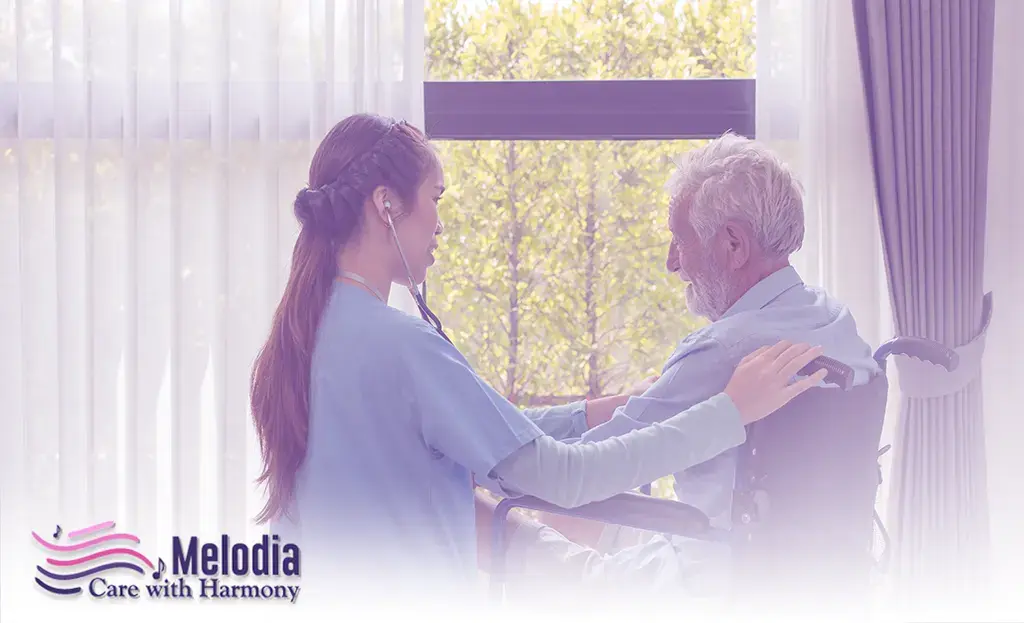Parkinson’s disease is a progressive nervous system disorder affecting movement. According to the Parkinson’s Foundation, it affects nearly one million Americans. Living with end-stage Parkinson’s disease can be challenging, even though its severity ultimately varies from person to person due to its heterogeneity. You may experience a worsening of falling, freezing, and rigidity. You may have a greater need for a wheelchair or be immobilized with severe posture problems. In such situations, hospice care for Parkinson’s disease may be the most appropriate option.
What Is End-Stage Parkinson’s Disease?

When Parkinson’s disease patients reach stage four, their symptoms become unbearable regardless of how long it takes to get there-patients with Parkinson’s disease in its fourth stage exhibit bradykinesia and rigidity. Stage four patients typically require assistance to walk, erect, and move.
When patients reach the final stage of Parkinson’s disease, stage five, they will have severe back, neck, and pelvic posture issues. They will need a wheelchair and may be confined to a bed.
Patients with advanced Parkinson’s disease frequently exhibit non-motor symptoms. Included in this category are incontinence, insomnia, and dementia. Certain Parkinson’s disease medications can induce symptoms. This occurs more frequently in patients with dementia.
Hospice Eligibility for Parkinson’s Disease

Due to the progressive nature of Parkinson’s disease, it can be difficult for families to determine when a family member is eligible for palliative care. If a loved one has been given a prognosis of six months or less to live, or if they have experienced a decline in their ability to move, speak, or participate in activities of daily living without the assistance of a caregiver, it is time to discuss next steps with a hospice professional.
Some of the factors that determine Parkinson’s disease hospice eligibility include:
- Difficulty breathing, including dyspnea at rest or the need for supplemental oxygen, and rapid progression to wheelchair or bed confinement
- Unintelligible statements
- Incapacity to independently perform Activities of Daily Living (ADLs).
- Inability to consume adequate food and liquids
- The complications include pneumonia, sepsis, pyelonephritis, and decubitus ulcers.
- Additional comorbidities
Medicare, Medicaid, and most traditional insurance plans cover hospice care at no cost to the family. Free provision of all medications, medical apparatus, and medical supplies related to the patient’s terminal illness. Additionally, Melodia Care Hospice will coordinate a care plan with the patient’s physician and family to ensure that all of the patient’s physical, emotional, and spiritual requirements are met.
End-Stage Parkinson’s Hospice Criteria

If your physician or specialist certifies that you or a loved one are terminally ill, your disease cannot be cured, and you have six months or less to survive if your end-stage Parkinson’s follows its natural course. However, it is essential to observe that many patients who receive hospice care sooner rather than later live beyond six months. Melodia hospice care allows you to bring hospice care to the attention of your physician or specialist so that you and your family can benefit from this additional consideration.
Parkinson’s disease patients are eligible for hospice care if they meet one or more of the following criteria:
- Rapid disease progression from independent to confined to a wheelchair or bed; normal to scarcely intelligible or unintelligible speech or pureed diet.
- Swallowing challenges and aspiration
- Repeated cases of pneumonia and other infections
- Weight reduction
- Need help with daily activities such as eating, bathing, etc.
- And further
Suppose an individual with end-stage Parkinson’s disease is not yet eligible for hospice care. In that case, they may benefit from the Melodia hospice care program, which provides home visits by a nurse practitioner and social worker in partnership with the patient’s physician. These visits can be especially beneficial if the patient can no longer walk independently, making doctor’s office visits more difficult.
How Can Hospice Help with Parkinson’s Disease?

Hospice care for Parkinson’s disease is a crucial decision. As the disease progresses, hospice care can help ensure that you or a loved one experience quality of life, dignity, and comfort.
Your household will have access to a team of specialists, including:
- Board-certified doctor
- Nurse certified in hospice care
- A social professional with specific training
- Approachable spiritual support counselor
- Certified home health attendant who is vigilant
- Dedicated volunteer
This Hospice Team Can Help Anyone with End-Stage Parkinson’s Disease
The certified home health aide does not administer medications but helps with daily tasks such as:
- Bathing and cleanliness
- Laundry and housekeeping
- Turning and repositioning the bed
- Cooking simple dishes
The nurse will routinely visit your loved one to address any Parkinson’s symptoms, including:
- Pain caused by rigidity and immobility
- Anxiety and restlessness
- Hallucinations or delusions
A social worker can help with emotional needs in addition to:
- Know your treatment options
- Fill out an advance directive
- Provide access to community resources
A spiritual support counselor can assist with the investigation of spiritual issues and can also:
- Promote significant life review
- Provide a safe location for doubt
- Find sources of optimism.
- Help with moral difficulties.
A volunteer provides companionship through conversation, television viewing, reading, game playing, and story sharing.
When you meet the hospice criteria for end-stage Parkinson’s disease, you will have peace of mind due to access to Parkinson’s hospice experts via phone 24 hours a day, seven days a week. If you have a query or require additional assistance, please contact Melodia Care Hospice at 1-888-635-6347.








